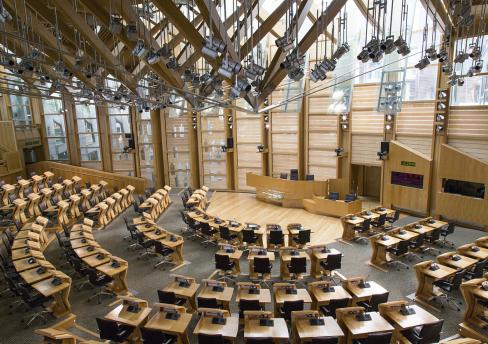
Link: Local Government Lawyer
Leadership and governance failures have been well-worn pitfalls of major public sector projects over the years.
Indeed, failures of project delivery can actually reverse the good intentions of public bodies. For example, a Public Accounts Committee report in 2016 found a UK Government scheme to cut costs through sharing departmental back office functions actually cost the taxpayer £4m more to deliver than the value of the savings identified.
A healthy £5.2 billion has been committed so far to supporting economic development in all parts of Scotland through City Region and Growth Deals.
This money comes from the UK and Scottish governments, councils and their partner organisations. It is a financial spaghetti junction.
Four deals have been signed to date in Scotland and eight are in development. However, Audit Scotland has rightly raised concerns around Scottish city deals, and governance is the consistent theme throughout.
Three key areas of scrutiny emerge: measuring success; transparency; and the risk of failing to deliver against a changing financial backdrop and unprecedented economic pressures.
Customer experience experts Don Peppers and Martha Rogers are credited with observing that, “if you aren’t measuring the right things to begin with, you’re not going to get better results by measuring them more accurately.”
This is a crucial insight for our city deals. Five years after signing the first deal, the Scottish Government has not set out how it will measure their long-term success, how it will know if deals are value for money, or how deals will contribute to the outcomes in the National Performance Framework. That framework tracks Scotland’s progress and is meant to use data to understand how well Scotland is doing.
These deals are a once-in-a-generation opportunity to reshape many of our communities. With combined funding that is five times the annual budget of Police Scotland, we must ensure the money is used wisely, and responsibly. Scotland is a small country, so we should be agile and responsive in the allocation of funds – but not at the expense of rigour, and effective measurement.
Transparency is at the heart of why this matters. It is a key pillar of democratic governance and a vital method for building trust with the people and businesses of Scotland.
At present, there is little publicly available evidence to explain why certain city deal projects were approved for funding instead of others.
It is clear that local communities have had very little involvement in the formation of city deals. Yet the published goal of a city deal is to delegate specific powers and freedoms to help the region support economic growth, create jobs or invest in local projects.
If those decisions have been left to local authorities and representative organisations, it is now equally important for those same organisations to explain their thinking; to outline their decision-making criteria; and to prepare local communities to help them secure funding in the first place.
Improving the governance structures will facilitate transparency and ensure the accountability of public bodies in their delivery of city deal projects.
The Scottish City Region and Growth Deal Delivery Board was set up in 2016 to offer the kind of scrutiny we all would like to see. It has quite a responsibility, including the effective monitoring of performance, outcomes, budget, risks and other issues relating to the programme. Unfortunately the operation of the Board is still evolving and it is not clear what its role is in evaluating the impact of city deals, which is surprising given the purpose of city deals is to bring about long-term strategic approaches to improving regional economies.
The importance of good governance is heightened as all public bodies grapple with the effects of the coronavirus pandemic. With the hardest economic downturn ever seen almost upon us, public sector spending is bound to be under huge pressure; government borrowing will skyrocket; and businesses will be desperate for support. These are not conditions that are conducive to effective, uncontentious delivery of deal projects.
The good news is, we still have time. Many city deals are in their infancy, particularly as more pressing concerns have occupied city leaders, and the Scottish Government. Now is the time to go back to basics, and introduce the accountability and scrutiny arrangements that will be vital to the success of a fantastic opportunity for Scotland.
Rory Alexander is Planning and Local Government Partner at one of the largest independent law firms in Scotland, Morton Fraser, and a Legal Associate of the RTPI.
The content of this webpage is for information only and is not intended to be construed as legal advice and should not be treated as a substitute for specific advice. Morton Fraser LLP accepts no responsibility for the content of any third party website to which this webpage refers. Morton Fraser LLP is authorised and regulated by the Financial Conduct Authority.









